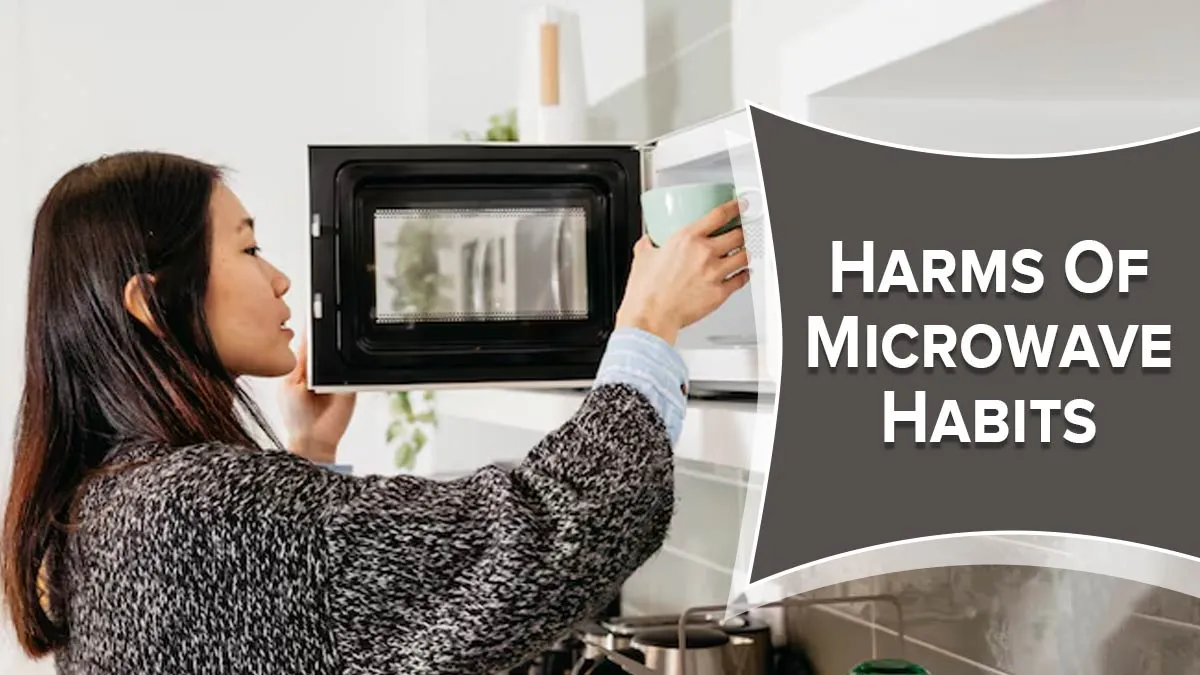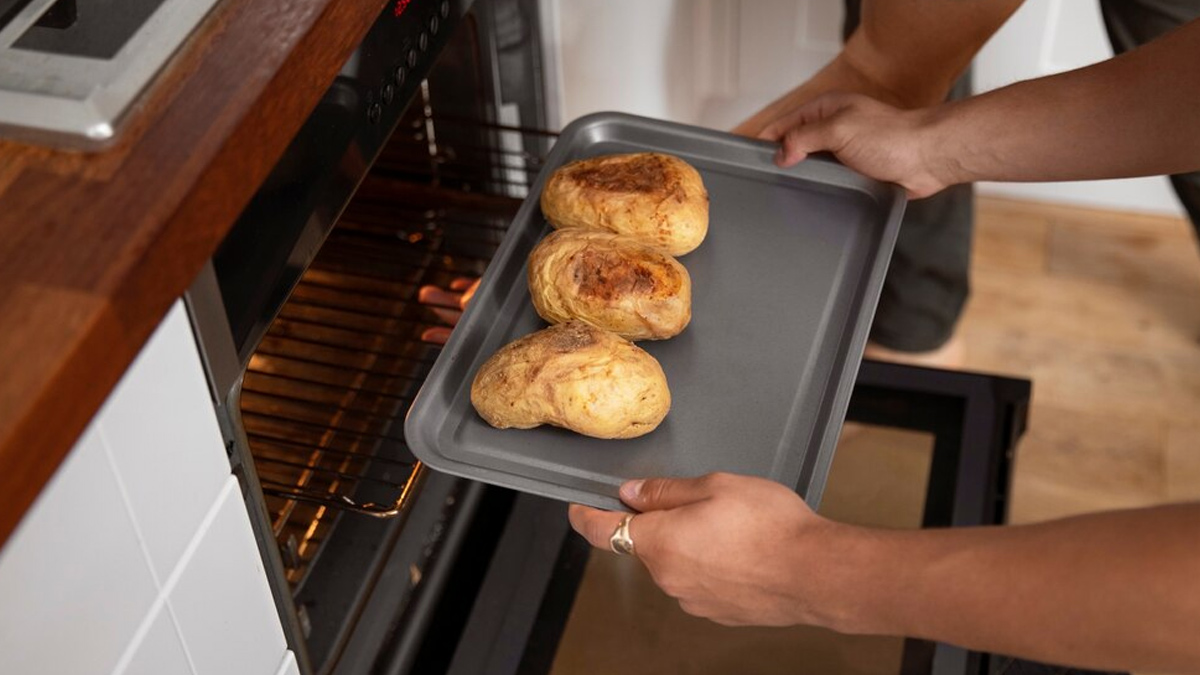
Microwaves are a kitchen staple for quick meals. But your go-to plastic containers might be doing more harm than good. Many people heat food in plastic without knowing the risks. When plastic gets hot, it can release chemicals into your food. Over time, these chemicals might affect your health.
Table of Content:-
Regarding the same, Dr Ravi Kesari, General Physician, Apollo Spectra Hospitals, Bengaluru, warns that common kitchen habits, like microwaving plastic, could expose you to hidden dangers. The good news? Simple swaps to safer materials like glass or ceramic can reduce these risks. Read ahead to know why your microwave habits need a change and how to make your kitchen safer with tips from a top expert.
How Microwaves Are Harming You?

The expert shares urgent advice on kitchen safety. Dr Kesari highlights how everyday items like plastic containers and non-stick pans could harm your health. According to him, “Plastics like BPA (Bisphenol A) can leach into food when heated. These chemicals disrupt hormones and may lead to health issues like infertility or heart problems.” His statement focuses on reducing exposure to toxic chemicals through smarter choices.
Plastic containers are lightweight and cheap. But heating them in the microwave can be risky. The expert explains that even BPA-free plastics aren’t always safe, as they might contain other harmful chemicals.
What You Can Do
-1739771763728.jpg)
“To cut down exposure to such chemicals, select containers that are made of glass, stainless steel, or BPA-free plastic. Never cook in plastic containers in the microwave. The heat may increase the speed at which toxins leach into the food,” claimed the expert.
Dr Kesari further advised, “Do not use high heat with any pan, never use utensils other than wooden or silicone-consider alternatives such as stainless steel, cast iron, or ceramic cookware that contain none of these harmful chemicals.” Below are a few alternatives that they can opt for instead.
- Use glass or ceramic containers for microwaving.
- Avoid reheating food in plastic, even if labelled “microwave-safe.”
- Transfer takeout meals to a glass dish before heating.
A 2019 study in Environmental Health Perspectives found that 97% of tested adults had BPA in their urine. High BPA levels were tied to liver issues, diabetes, and obesity. This proves how easily these chemicals enter our bodies—often through food.
The Problem with Non-Stick Cookware
Non-stick pans make cooking easier, but they come with risks. Dr. Kesari warns, “Overheating non-stick pans releases toxic fumes. These can cause flu-like symptoms or long-term lung damage.” Scratched or old pans are worse. They may leak PFOA (a chemical linked to cancer) into food.
Safer Alternatives:
The expert suggested a few safer alternatives.
- Stainless steel: Durable and non-reactive.
- Cast iron: Naturally non-stick when seasoned.
- Ceramic coatings: Free from PFOA and PTFE.
How to Switch to Safer Materials
- Start Small: Replace one plastic container or pan each week.
- Check Labels: Buy glass or ceramic labelled “oven-safe” or “microwave-safe.”
- Avoid High Heat: Cook on low-medium heat to prevent chemical leaks.
- Store Smart: Use glass jars for leftovers instead of plastic.
Dispose of Old Cookware Safely
Don’t toss non-stick pans in the trash. They can pollute the environment. Dr Kesari advises, “Check local recycling programs. Many accept old cookware for safe disposal.”
Final Thoughts
Your kitchen habits play a big role in your overall health. By making simple changes, like switching to glass or ceramic containers and ditching non-stick cookware, you can reduce your exposure to harmful chemicals. Dr Ravi Kesari’s expert advice highlights how small steps, such as avoiding microwaving plastic and choosing safer cookware, can make a big difference. Start today by replacing one risky item at a time. Your health is worth it, and these changes are easier than you think.
Also watch this video
How we keep this article up to date:
We work with experts and keep a close eye on the latest in health and wellness. Whenever there is a new research or helpful information, we update our articles with accurate and useful advice.
Current Version